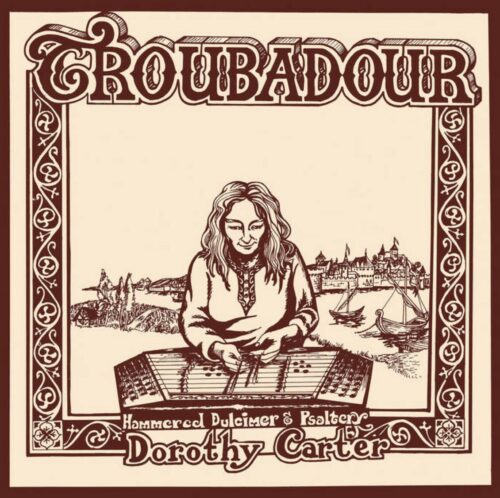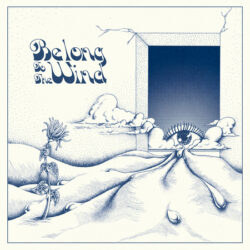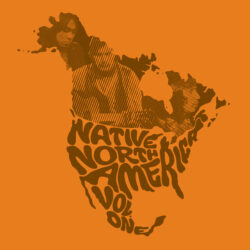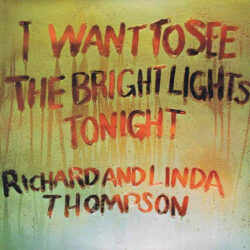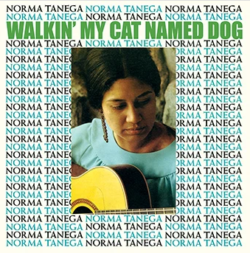Troubadour
Label: Drag City
Genre: Best of 2024, Highlights, Folk
$39.99
Availability: In stock
Audiopile Review: Musical worlds collide in strange and unexpected ways. In the 70s and 80s, there was a weird confluence of psychedelic folk, new age music, and the avant-garde. This was epitomized by new age icon Constance Demby. But you’ll find even more strange collisions if you trace the career of Dorothy Carter, who was Demby’s bandmate in Central Maine Power Music Company. For instance, in the 90s, Carter moved to London and formed early-music revival group Mediæval Bæbes. And, amazingly, perhaps the only known Dorothy Carter live recording was made at the Vancouver Folk Music Festival in 2000. But we’re here to talk about the new reissue of her 1976 solo debut, ‘Troubadour’. What’s astonishing about this is how fully formed Carter’s vision arrived on the scene. Utilizing all manner of dulcimers and zithers, she built chiming pantheistic hymns to the cosmos. And she used her distinctly occult vocal style sparingly, but to mesmerizing effect. If you’re a fan of acid folk, private press ambient, or just plain unique next-level shit, you absolutely need this in your life.
Drag City presents the first official reissue of Dorothy Carter’s 1976 debut album, her folk-music exegesis: Troubadour. It’s been 20 years since Dorothy’s passing — but thanks to last year’s reissue of her second album, Waillee Waillee (1978), and this edition of Troubadour, her music is surging forward ever more powerfully. Today’s announcement comes with a visualizer for the first single, “The King of Glory”, a hypnotic hymn hammered by Dorothy evoking western medieval music.
In her lifetime, Dorothy Carter, a self-made traveling musician and folklorist, brought forth masterful evocations on hammered dulcimer and psaltery from a myriad of times and places. Following a childhood spent around New England, Dorothy Carter travelled abroad for her higher education and found herself in Mexico during the late 1950s, intent on becoming a nun at the Cuernavaca monastery. Instead, she fell in with a group of expats including David Demby, his soon-to-be-wife Constance Demby (her moment of New Age musical breakthrough still three decades hence), and aspiring artist and musician Bob Rutman. In the early ’70s, this bunch would together form Central Maine Power Company: a troupe of almost feral improvisers playing on a combination of self-made and found instruments, with live video feedback to boot, performing across the Northeast at planetariums and even MoMA.
Dorothy had been playing music for decades by this point, but it wasn’t until 1976 that she’d record any of it. That year, she went to Cambridge’s Studio B with Rutman and friend Steve Baer at the console, with Constance and Sally Hilmer accompanying her. The performances captured there were released later that year as Troubadour: a record where, in addition to hammered dulcimer and psaltery, Dorothy played the flute and sang. She chose songs from all over: Appalachian folk tunes (“Shirt of Lace”), old and ancient psalms and hymns, Scottish, Irish, French and Israeli melodies (“The King Of Glory”), with a few of her own songs for good measure (“Masquerade”). They all flow together effortlessly under Dorothy and friends’ hands in a syncretic space that we can identify today as a garden of world musics — a highly energised, alternately meditative and proselytic recital whose vitality has only burgeoned in the decades since it appeared. As it should be: the music of Dorothy Carter is akin to a portal, linking her and us with the eternal.
The mythos and arcana Dorothy Carter pursued in relative obscurity is now inspiring an audience larger than she ever knew — and now, a long-held family dream comes true with this reissue of Troubadour, out August 30th. The vinyl edition reproduces the original album package, adding an insert adorned with additional photos of Dorothy and her collection of instruments, as well as notes from reissue producer Eric Demby exploring the era—his childhood—from a vantage point of some 50 years. After all: wherever his parents David and Constance took the family, there too was Dorothy, as she lived and breathed, playing her hammered dulcimer.

